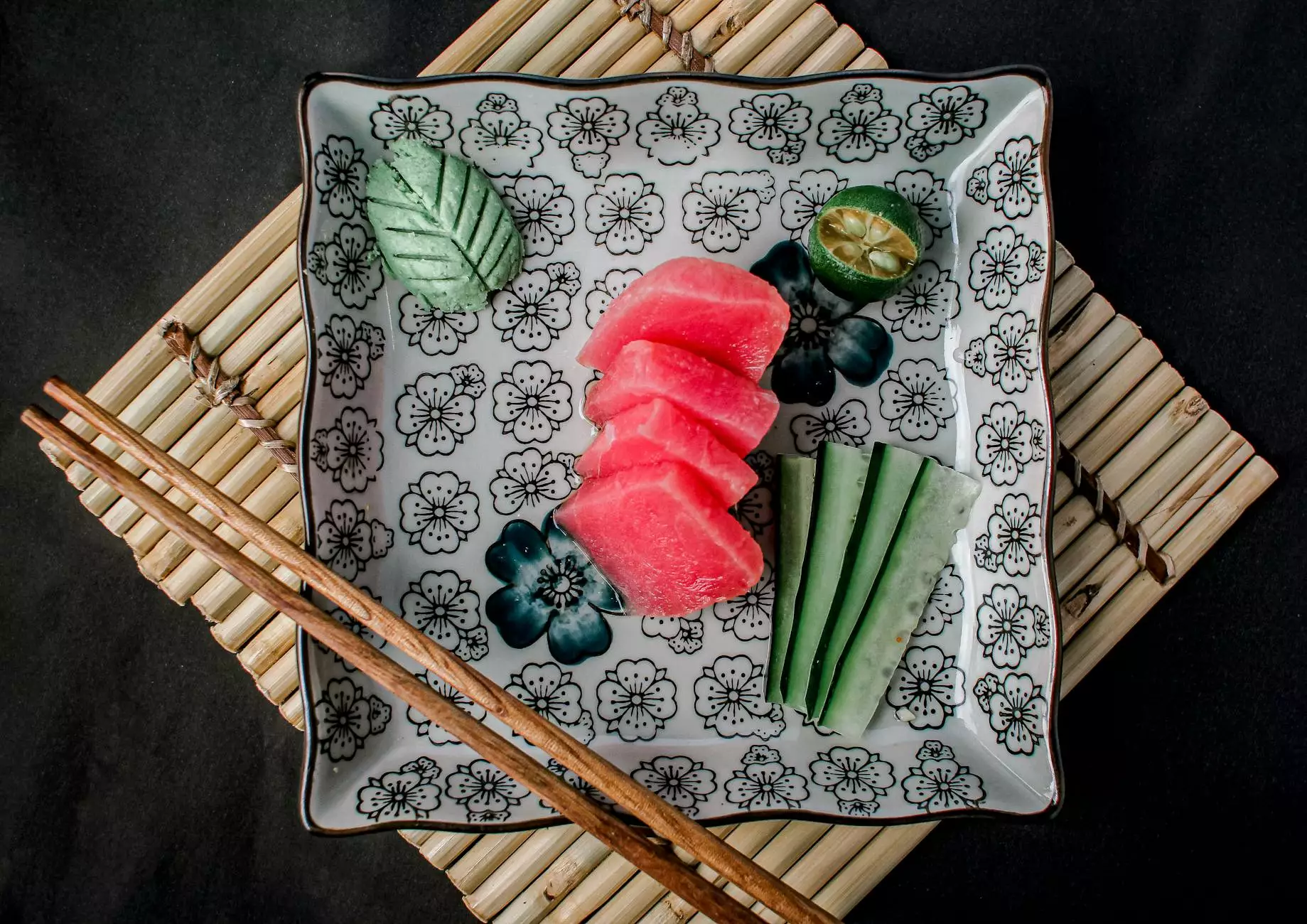The Incredible World of Wasabi Rhizome: A Culinary Treasure

The wasabi rhizome is a fascinating and unique ingredient that often goes underappreciated in the culinary world. As a staple in Japanese cuisine, particularly in sushi bars and restaurants, this remarkable plant is much more than just a condiment; it is a symbol of quality, tradition, and flavor. In this article, we will explore the various aspects of the wasabi rhizome, including its cultivation, culinary uses, health benefits, and cultural significance.
1. What is Wasabi Rhizome?
The wasabi rhizome comes from the plant Wasabia japonica, which belongs to the Brassicaceae family—this is the same family that includes mustard and horseradish. Wasabi is typically found in cool, running water environments, primarily in Japan. The rhizome is the part of the plant that is harvested and used as a condiment.
Unlike the green paste commonly served with sushi, true wasabi has a more complex flavor profile. It is often described as having a fresh, crisp taste with a layer of sweetness, combined with the familiar heat that is characteristic of spicy ingredients. This unique combination makes it a sought-after ingredient in various culinary applications.
2. The Cultivation of Wasabi Rhizome
Growing wasabi is a labor-intensive process. The plant requires specific conditions, including:
- Cool Temperatures: Wasabi flourishes in temperatures ranging from 46°F to 70°F (8°C to 21°C).
- Shade: Direct sunlight can be detrimental to wasabi growth; thus, the plant prefers shaded areas.
- Running Water: Natural springs or streams provide the ideal environment, as the roots must be submerged in cool, oxygen-rich water.
- Rich Soil: A nutrient-rich, well-drained soil that retains moisture is essential for healthy growth.
Cultivating wasabi is so challenging that it is often considered a delicacy, commanding high prices in restaurants and sushi bars. As a result, many chefs and food enthusiasts seek authentic wasabi to enhance their dishes.
3. Culinary Uses of Wasabi Rhizome
In the culinary world, the wasabi rhizome is revered for its versatility and flavor. Some of the most common uses include:
3.1 High-Quality Sushi
Perhaps the most well-known application of wasabi is in sushi preparation. Authentic sushi chefs use freshly grated wasabi rhizome to accompany various sushi dishes, enhancing the umami flavors of the fish. The fresh nature of the grated wasabi provides a depth of flavor that cannot be replicated by the common green paste found in most Western sushi restaurants.
3.2 Sauces and Dressings
Beyond sushi, the wasabi rhizome can be incorporated into sauces, dressings, and marinades. Its heat can enhance the flavor of dipping sauces for tempura or salads, bringing an exciting twist to traditional recipes.
3.3 Grated Fresh with Dishes
Freshly grated wasabi can be served with various dishes, including grilled meats and seafood. Rather than overpowering the dish, the wasabi enhances the overall dining experience, complementing the flavors beautifully.
3.4 Unique Pairings
The complexity of the flavor profile makes the wasabi rhizome a great companion for a variety of foods. Some interesting pairings include:
- Cheeses: Soft cheeses work exceptionally well with wasabi, creating an unexpected yet delightful contrast.
- Vegetables: Grated wasabi can enhance roasted or grilled vegetables, adding a zesty kick.
- Fruits: Pairing wasabi with fruits like watermelon or mango can create an exciting explosion of flavors.
4. Health Benefits of Wasabi Rhizome
In addition to its culinary applications, the wasabi rhizome boasts numerous health benefits:
- Antimicrobial Properties: Research has shown that wasabi contains compounds that exhibit antimicrobial effects, which can help reduce the risk of foodborne illnesses.
- Anti-Inflammatory Effects: Certain compounds in wasabi can help reduce inflammation, making it beneficial for those with inflammatory conditions.
- Rich in Antioxidants: Wasabi contains antioxidants that may help protect the body from oxidative stress and related diseases.
- Digestive Benefits: Consuming wasabi may aid digestion, helping to break down food better and promoting gut health.
4.1. Wasabi in Traditional Medicine
In traditional Japanese medicine, wasabi has been used for centuries due to its perceived health benefits. It is believed to help with respiratory issues and is often incorporated into remedies for colds and infections.
5. The Cultural Significance of Wasabi
Wasabi is entrenched in Japanese culture. Traditionally, it has been used not only as a condiment but also as an integral part of various ceremonies and rituals. The significance of wasabi goes beyond mere flavor; it symbolizes the careful balance of nature in Japanese culinary arts.
The preparation and serving of wasabi are treated with great respect in high-end sushi restaurants. Authenticity is crucial—diners are often keen to know the provenance of their wasabi, with chefs proudly stating that they use freshly grated wasabi rhizome.
6. The Economic Impact of Wasabi Cultivation
The demand for true wasabi has spurred economic activity in areas where it is cultivated. Farmers are increasingly turning to sustainable practices to meet the market's need for organic and authentic products, leading to a surge in niche agricultural practices.
Establishments like realwasabi.com help bridge the gap between growers and consumers, promoting local farmers and offering authentic wasabi products directly to restaurants and home cooks alike.
7. Conclusion: Elevate Your Culinary Experience with Wasabi Rhizome
The wasabi rhizome is much more than a simple condiment. It is a culinary treasure that enhances flavor, promotes health, and enriches cultural significance. Whether you are a home cook or a restaurateur, incorporating authentic wasabi can elevate your dishes and offer your guests a taste of true Japanese tradition.
Explore the world of wasabi rhizome today, and discover the extraordinary flavors and health benefits that this remarkable plant can bring to your culinary repertoire. From sushi lovers to adventurous eaters, everyone deserves to savor the unique essence of wasabi.









